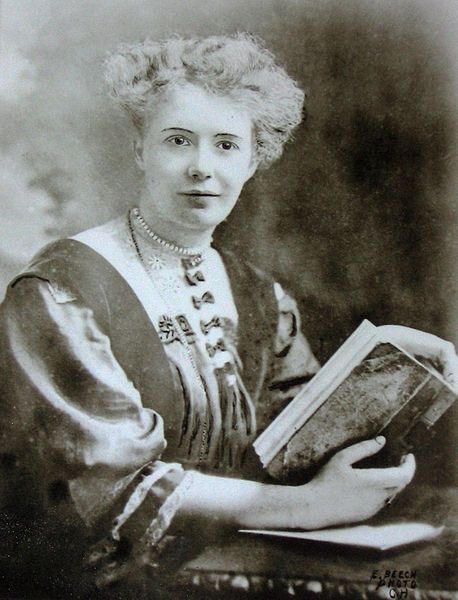
Mary MacCarthur
13th August 1880 - 1st January 1921
Trade Unionist & Women’s Campaigner
Mary Macarthur, the daughter of John Macarthur and Anne Martin, was born in Glasgow in 1880. The couple had six children, but only three survived, all of them girls. Mary attended the local school and after editing the school magazine, decided she wanted to become a full-time writer.
In 1895 the family opened a drapery business in Ayr and Mary was taken on as a book-keeper. John Macarthur was a supporter of the Conservative Party and an opponent of trade unions and sent his daughter to observe a meeting of the Shop Assistants' Union. Mary was converted to the cause of trade unions by a speech made by John Turner about how badly some workers were being treated by their employers. Mary became secretary of the Ayr branch and at socialist meeting in the town, she met and fell in love with Will Anderson, an active member of the Independent Labour Party.
In 1902 Mary became friends with Margaret Bondfield who encouraged her to attend the union's national conference. Mary did, and was elected to the union's national executive. Mary's political activities created conflict with her father who had a strong hatred for socialism. Anderson proposed marriage but Mary decided to pursue a career instead, and in 1903 moved to London where she became Secretary of the Women's Trade Union League.
As well as her trade union activities, Macarthur was an active member of the Independent Labour Party in London where she worked closely with two other Scots, James Keir Hardie and Ramsay MacDonald. Macarthur was involved in the Exhibition of Sweated Industries in 1905 and the formation of the Anti-Sweating League in 1906. The following year she founded the Women Worker, a monthly newspaper for women trade unionists.
Mary Macarthur was an inspirational figure and recruited many women into the movement. Active in the fight for the vote, she was totally opposed to those women in the NUWSS and the WSPU who were willing to accept the franchise being given to only certain categories of women. Macarthur believed that a limited franchise would disadvantage the working class and feared that it might act as a barrier against the granting of full adult suffrage. This made Macarthur unpopular with middle class suffragettes who saw limited suffrage as an important step in the struggle to win the vote.
Will Anderson followed Macarthur down to London and the couple married in 1911. Anderson was elected to the House of Commons in 1914 but was defeated in 1918. Macarthur also stood as a Labour candidate, but like the others who opposed the First World War, she was defeated in the 1918 General Election.
Mary was devastated when Will Anderson died in the 1919 influenza epidemic. She continued her work with the Women's Trade Union League and played an important role in transforming it into the Women's section of the Trade Union Congress. Mary Macarthur died of cancer on 1st January, 1921.
To make your own nomination download the nomination form here